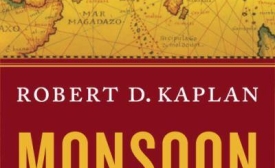united states
Foreign leaders and publics may take the outcome of the election as a signal about what to expect from Obama in the next two years and craft their strategies accordingly. A GOP victory might embolden Israeli Prime Minister Benjamin Netanyahu to continue stonewalling Obama and to stoke partisan opposition to his policies, for instance.

Let’s begin with a quiz. What and where is Gwadar? Few people can answer that today, but some in the know believe that within 20 years, it will become the next Dubai.
President Barack Obama’s 2009 inauguration ushered in a new era that sought for America to re-engage with the world. Two years later it still stands in stark contrast to eight years of President George W. Bush’s unilateralism and reputation for cowboy diplomacy. But what happens to the spirit of Obama’s foreign policy if Republicans capture control of Congress?
American Ballet Theatre dancers promised pirouettes - not politics - during the troupe's historic visit to Cuba this week, the first by the New York-based company since shortly after Fidel Castro's 1959 revolution turned the island into a U.S. nemesis.
What the West needs most is a fresh look at the full range of its capabilities and interests. Only then can its power fulfill its purpose. Seen as a wonder tool, smart power has been embraced as a fresh and benign aspect of power; a definably formulaic mix of soft (cultural) power and hard (military) power.
Delivering invigorating Latin jazz was only part of pianist Chucho Valdés's agenda Saturday night at the Warner Theatre; he also affirmed alliances between various Afro-Cuban idioms and several American jazz legacies.
Co-author: Andras Simonyi
Budapest, Hungary -- In the run-up to the NATO summit Nov. 19 in Lisbon, the transatlantic community must confront not just the burning issues it faces (from Afghanistan to Russia), but the way free nations can and should wield their power for global progress.
A new study by the World Bank’s Jishnu Das and Pomona College’s Tahir Andrabi titled In Aid We Trust: Hearts and Minds and the Pakistan Earthquake of 2005 reiterates that humanitarian aid can win local favour. The study shows that those Pakistanis who interacted with aid workers after the 2005 earthquake retained positive impressions and high levels of trust in westerners four years after that calamity.







